Hubris
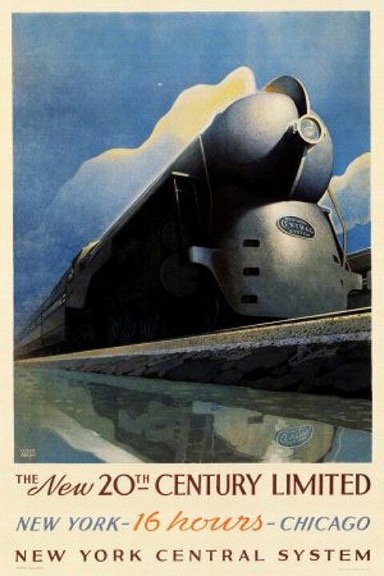
Anonymous, after print by Jean Veber: Schaduw van Paul Kruger hangt over het Franse leger tijdens de wapenschouw te Bétheny,
[Shadow of Paul Kruger hangs over the French army during the gun show in Bétheny] (1901)
Gallery Comment:
"This coat of arms of the French army was held on September 19, 1901 in Bétheny for Tsar Nicholas II. Paul Kruger was in Europe at the time, where he tried to recruit support for the struggle of the Boers in South Africa - especially from enemies of the United Kingdom, such as Russia and France. Print is part of a magazine with cartoons about the Second Boer War. With a three-line caption: Never has a cleaner army shown its strength more brilliantly… while such a clean use had to be made of it for the matter of law."
"They will exit on the same horse they rode in on."
Every civil society insists upon certain comportments. In Washington, DC, most government employees still wear formal business attire. It's unthinkable to go into the office in jeans. In Silicon Valley, a similarly enforced dress code focuses upon a more studiously casual style, just as religiously observed. There, it might be unthinkable not to go to the office in jeans. In the South, people still routinely address each other as "sir" and "madam," however backward that might seem. When I lived there, I quickly adapted to the local standard even though I'd previously thought myself too modern to so engage. I noticed the resulting gentility when people observed this practice and felt adequately cultured when I participated. Even though I'm re-ensconced back in the heathen north, I still observe this practice. It now seems like a matter of simple decency to me. If I had not been raised well, I managed to learn better.
There are likewise comportments that never seem to contribute anything positive.
WitchHunting

Jean Veber: Witches (1900)
"All accusations to the contrary qualify as WitchHunting."
Even wannabe dictators must learn to spend much of their time in denial, for they become a magnet attracting outrageous accusations. Not that most of them aren't true, but it just would not do to confess to what he's actually up to. Aspiring dictators must uphold certain standards, and truthfulness is, frankly, somebody else's purview. Truth and fiction must become indistinguishable, requiring at least daily denial. News conferences almost always feature the incumbent awkwardly admitting something by vehemently denying it. The assembled journalists and even the press secretary understand the ritual, and few even attempt to deliver a killer follow-up after their original question gets rudely blown off. The palpable fictional content of the denial hangs in the air for a while like smoke obscuring mirrors. He insists they've only uncovered another Witch Hunt, which everyone understands does nothing but confirm the absolute truth of the original statement.
It might help the eroding credibility if he could vary the terms he employs to describe the situation.
ChangingThePast
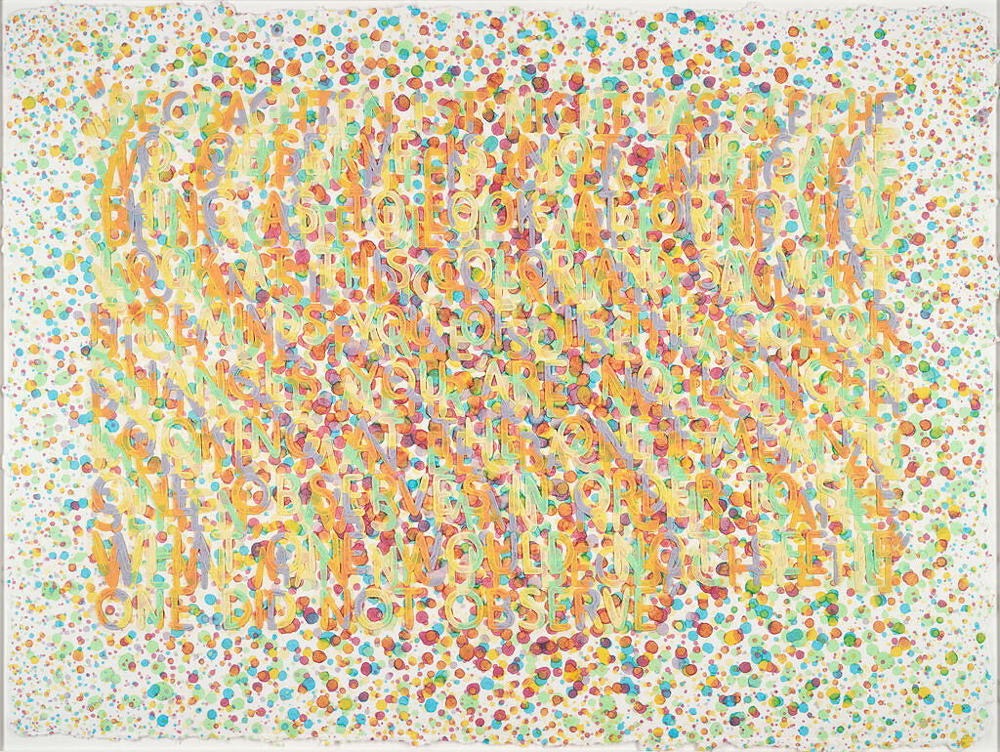
Mel Bochner: If the Color Changes [MB2042] (2001)
© Mel Bochner
"They toil to expunge themselves. Good riddance!"
Unable to positively change any future, repressive regimes quickly turn their attention to ChangingThePast. This amounts to an impossible objective, though the native impossibility of it won't halt or even meaningfully retard their effort, for outrunning an unsavory past seems imperative if the repressive regime is to gain any respectability. If they can whitewash history, they might stand a chance to reprogram memories. This could result in a sort of forced respectability that repressive regimes always seek. They want to be seen as in favor of mom and apple pie rather than bloody labor strife and Jim Crow Laws. If they are nothing, they are deep-down hypocrites. They desperately want to forget whatever might tarnish their reputation and, their reputation being less than reputable, requires some extraordinary reengineering. They focus on repressing books because they're an easy and reliable target. Not that many of their supporters read all that many books. They've always sown deep suspicions that readers are progressives. They slur other publications and their publishers. Suppose The New York Times publishes a highly-regarded series that turns into a book and a Netflix series tracing the real history of African Americans. In that case, everyone involved gets labeled as "woke." Pure public relations genius soon rebrands "woke" from meaning a form of insightful wisdom to meaning a means for demeaning white people. Wokeness becomes public enemy number one.
Repressive regimes seem uninterested in any distinction between truth and fiction.
Weekly Writing Summary For The Week Ending 03/27/2025
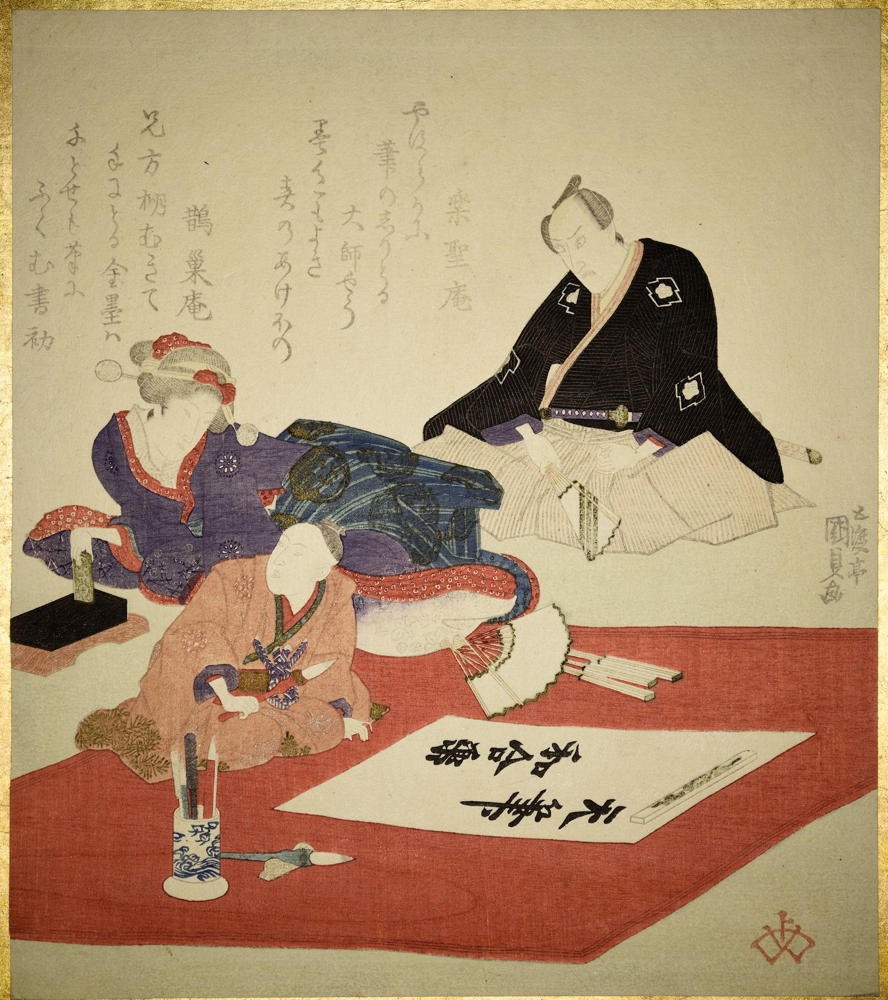
Kunisada Utagawa: Writing examination (1810 - 1830)
Just Trending Toward Something
If I'm witnessing a revolution, it certainly seems to be an awfully ham-handed one. I'm reminded of how a gorilla might go about disassembling something he doesn't understand. He resorts to muted brute force, not knowing what might cause the thing to open. He dents the case and ultimately gets defeated by tiny screws, the operation of which seems too subtle for him to comprehend. Almost every move has been thwarted by the courts. Appeals have likewise proven fruitless. Chaos has resulted. I won't argue that chaos doesn't produce its own effects, though they tend to be something other than structural. They might even create a more substantial structure than it attempted to threaten. As chilling as many of the initiatives have seemed, they sum to deeply superficial, perhaps because they're inspired by science fiction. They rely upon non-existent principles and properties. They profoundly misunderstand human nature.
PennyWisdom
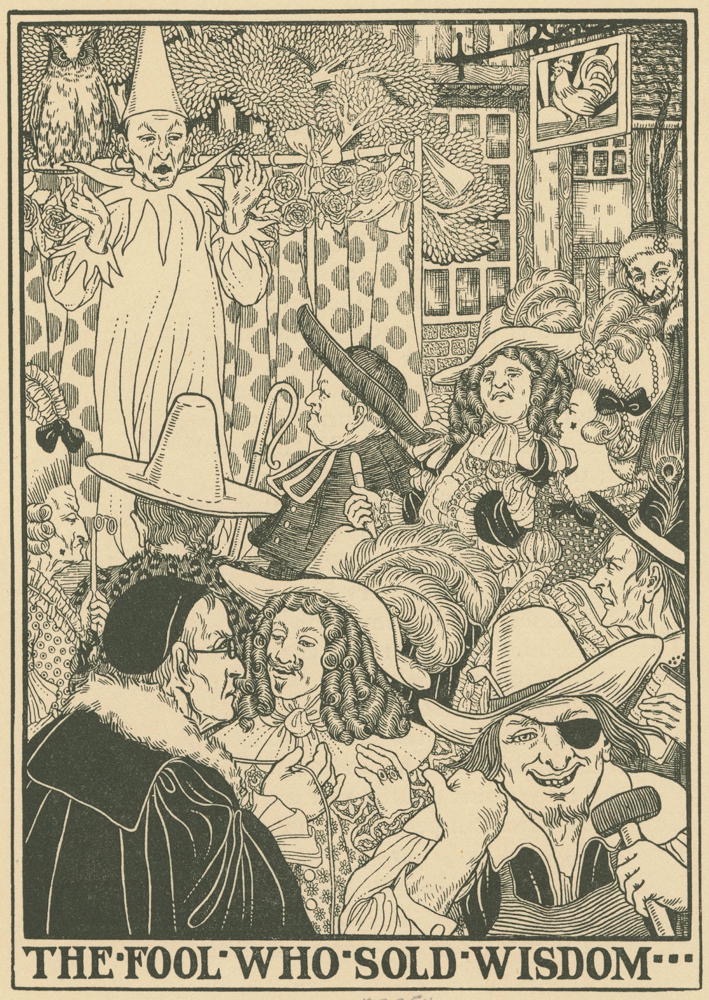
Percy Billinghurst: The fool who sold wisdom. (1900)
"I wonder how our public purse might be influenced
if our billionaire benefactors had ever learned to play Find A Penny, Pick It Up."
The recent injection of multitudes of billionaires into positions affecting the public purse has provided an opportunity to understand better how the very wealthy relate to money. I, the son of parents who grew up through the Great Depression, inherited certain beliefs and practices regarding money. I believe that money is almost impossible to acquire. This belief encourages me to be stingy. I do not seek luxury. I prefer good enough over perfect. I understand that everything costs money and that, mostly, the amount of money stuff costs cannot be meaningfully reduced. Attempting to reduce the cost associated with basic living tends to increase that cost. Trying to eliminate that cost almost always creates catastrophe; the absence of such expenses produces genuine calamity that will cost multiples of whatever was supposed to be saved to recover. I try to be satisfied with what I have, understanding that it's always possible to spend a lot more without gaining an ounce of additional satisfaction. Get-rich-quick schemes tend to be the best way to get poorer quickly.
BIllionaires seem to believe that a penny not spent is a penny somehow liberated from a form of slavery.
Equivocal
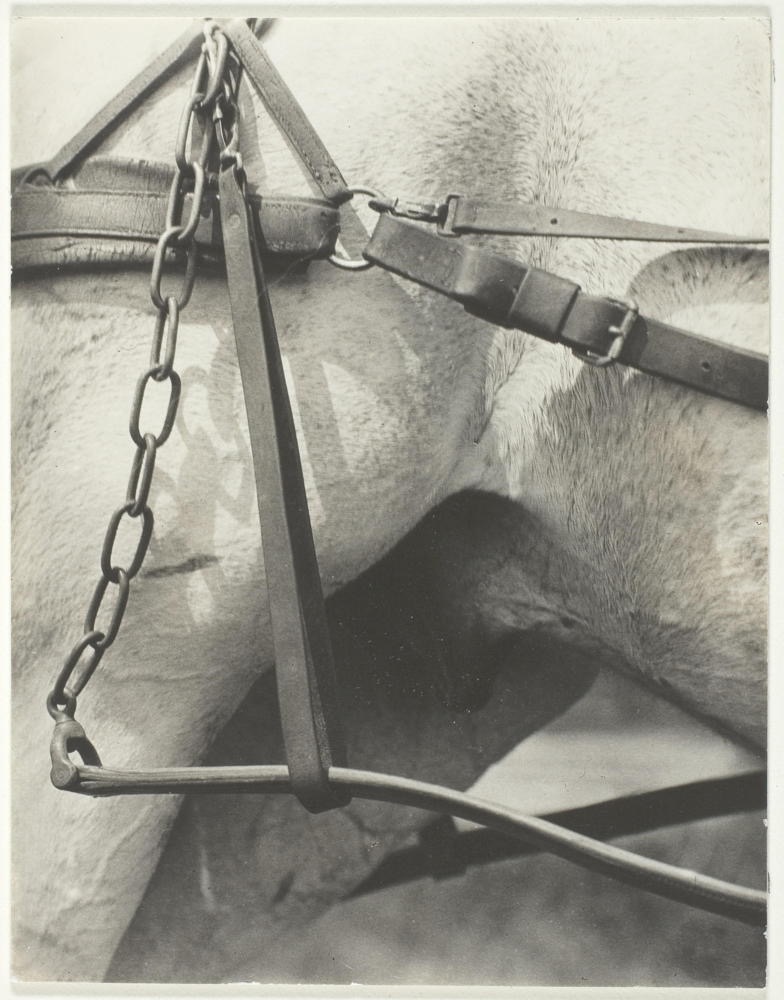
Alfred Stieglitz: Equivalent, Spiritual America (1923)
"The reigning forces of darkness have no idea what they've inspired."
They lie so reflexively it remains impossible to see any shred of truth in their responses. They know that you know, too. It's as if they're chiding you, urging you to go ahead and try to get even. Impunity never imagined a better friend. And they're right for the moment. In that instant, there couldn't possibly be any leveling of that playing field. The whole game seems to belong to Simon Legree's team. The umpires are crooked. The fans, divided. Even the future of the game appears undecided. What was once considered The Great American Pastime no longer means anything to anybody. It's become a medium for domination to a few and the absolute symbol of subjugation to a fast-growing majority. This situation will turn, but not immediately, and certainly not without considerably more discomfort. Until then, the lies will continue unabated as if winning those little controversies mattered, and the liars will continue enjoying the only notoriety they will ever see. They're each set on a course toward infamy.
Philosophers might insist that every human action might as well be considered ambiguous.
Insecure
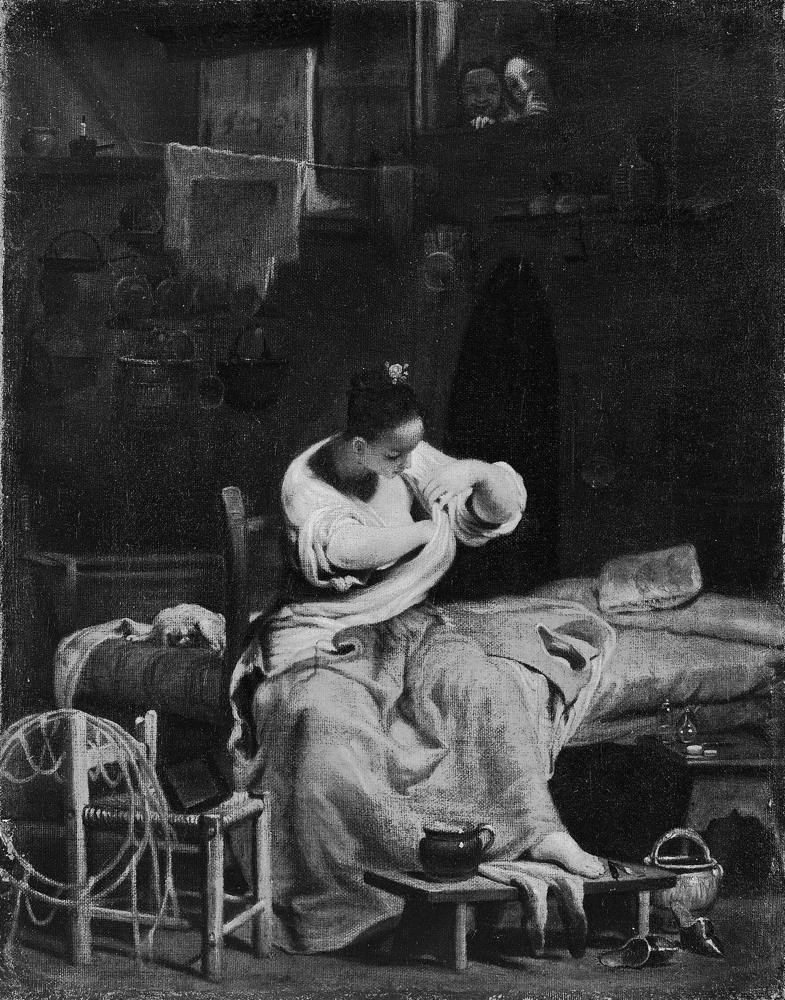
Attributed to Giuseppe Maria Crespi:
Woman Looking For Fleas (c. 1715)
" … the one true sign of their underlying cowardice!"
Security was never gonna be this administration that can't administer anything's strong suit. If loose lips did sink ships, we'd be down a few battle cruisers after only two months with "him" in office. Fortunately, most breaches go unnoticed by allies and enemies. The most damaging ones live on to become exemplars of an administration's performance, bloopers that lived on to become definingly infamous. The amateurs employed by this operation ensured a day like yesterday would eventually come around, where a group of senior officials engaged in top-secret government business on an insecure private network with an inadvertently invited journalist listening in. This arrangement violated more laws than it respected, though few doubt that what it represented has been a typical scenario since this incumbent took office. I know from a recent conversation with an old friend who works at the USDA that they, too, communicate via Signal, though that violates multiple communication preservation and security protocols. It should surprise nobody that this incumbent, who scoffs at almost everything, also routinely scoffs at security laws.
When confronted with the evidence of this egregious security breach, our new Secretary of Defense (SecDeaf) responded by screaming at the questioning reporter, thoughtfully channeling his emotional age as if anybody was likely to guess differently.
Extortion
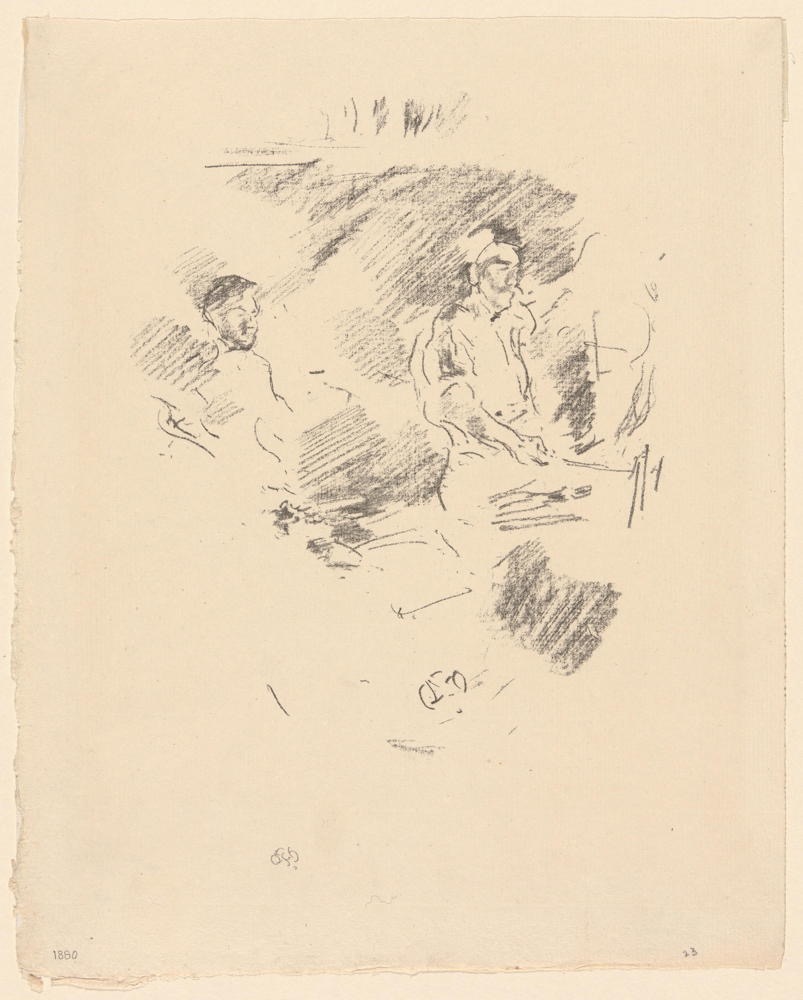
James McNeill Whistler: The Strong Arm (1895)
"Congratulations, or something. Such are the wages Extortionists always earn."
Nothing better evidences the weakness of this new administration that can't seem to administer anything than that they resort to bullying instead of convincing. Honest politicians exercise the considerable art of forging such deals, persuading, horse-trading, and working for agreement with the implicit acknowledgment that whatever's decided won't hang together long without voluntary acceptance. Governing demands the consent of the governed, as every failed authoritarian can readily testify. They thought it might be somehow simpler to strong-arm their way toward acquiescence, and in the extremely short run, such tactics might even seem to succeed, but no allies get created when inflicting such decisions. Quite the opposite. With each so-called success, the number of detractors grows until no supporters are left. It matters how treaties emerge.
It feels no less terrifying to understand that the assault comes as a result of their weakness.
MessSitting

Jack Gould: Untitled [mess on floor of ruined apartment] (1955)
"I'm first coping with the underlying nature of the difficulty."
Last night, for the second night in a row, The Muse and I had been invited out to engage in another dialogue. Neither engagement was intended to fix anything, but each was more focused on better understanding the nature of the difficulties or what fixing might entail. We might have wondered what we'd gain from engaging in conversations while Rome burns, except our experience strongly suggested that failing to engage in precisely such conversations might be the leading cause of failures when attempting to extinguish fires. It's all too easy to run into the burning building armed with little more than the best intentions, only to discover some hidden nature of the fire after entering. Under the Measure Twice Before Cutting Rule, it's often proved better to engage in some aimless conversation before acting to resolve a situation, however urgent it seems. It might even be that the more urgent a response appears, the more necessary the preceding conversation. Improving focus or understanding might better target a response.
This always seems like wasted time.
CHope
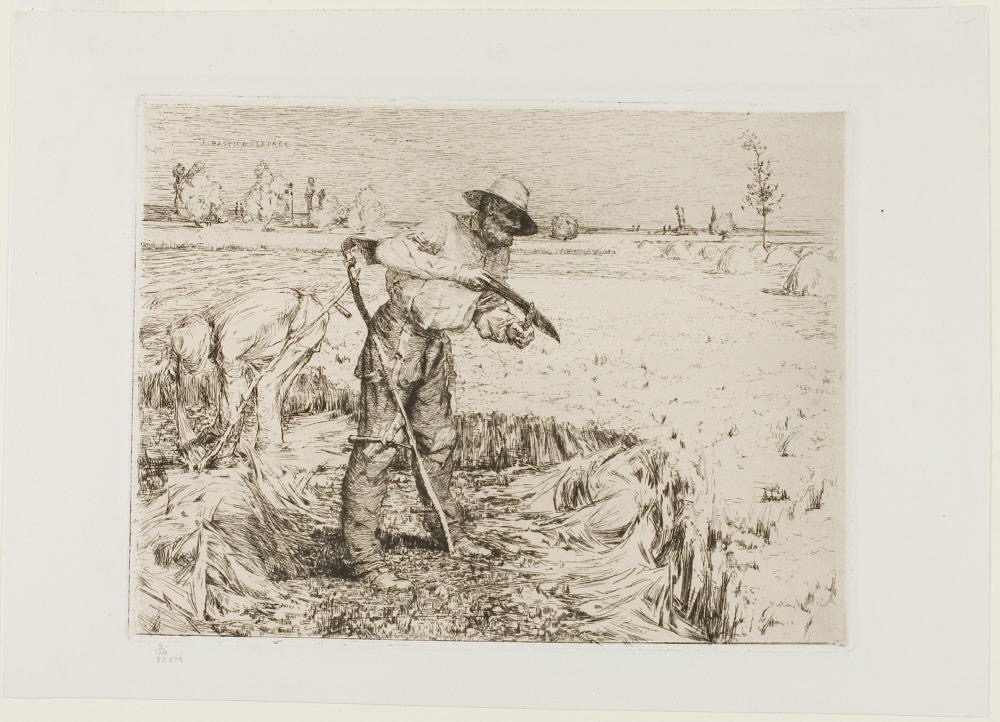
Jules Bastien-Lepage: Mower Honing a Scythe (1878)
" … and to radiate enough hope to make however I cope feel worthwhile."
Over recent months, my MacBook Air started crashing each morning. Because I became a compulsive saver, I rarely lost anything in these crashes. They became annoying, usually happening at one of the more inconvenient times. I'd be rushing to finish posting my daily story when everything would freeze up, and I'd have to begin that familiar recovery routine. We all know how rebooting under such conditions seems to take a little longer than forever. I'd recover and then finish my business feeling persecuted rather than elated. On a recent trip to Portland, I resolved to buy a new MacBook. I'd diagnosed the crashing difficulty as being caused by insufficient memory. I'd learned that my current machine already has all the memory it can handle, so I reasoned that I needed a new machine. The Apple Store was its usual minimalist purgatory overrun with potential customers. I managed to catch the attention of a representative after spending fifteen or twenty minutes poking at sample display machines. I'd decided what I needed but quickly learned they didn't have what I wanted. I was advised I could order one online but cautioned that the low inventory probably meant some newer models were imminent. I left with a pocketful of complications, knowing that I would not run home and purchase a new machine online.
I started coping better with my situation instead.
Weekly Writing Summary For The Week Ending 03/20/2025
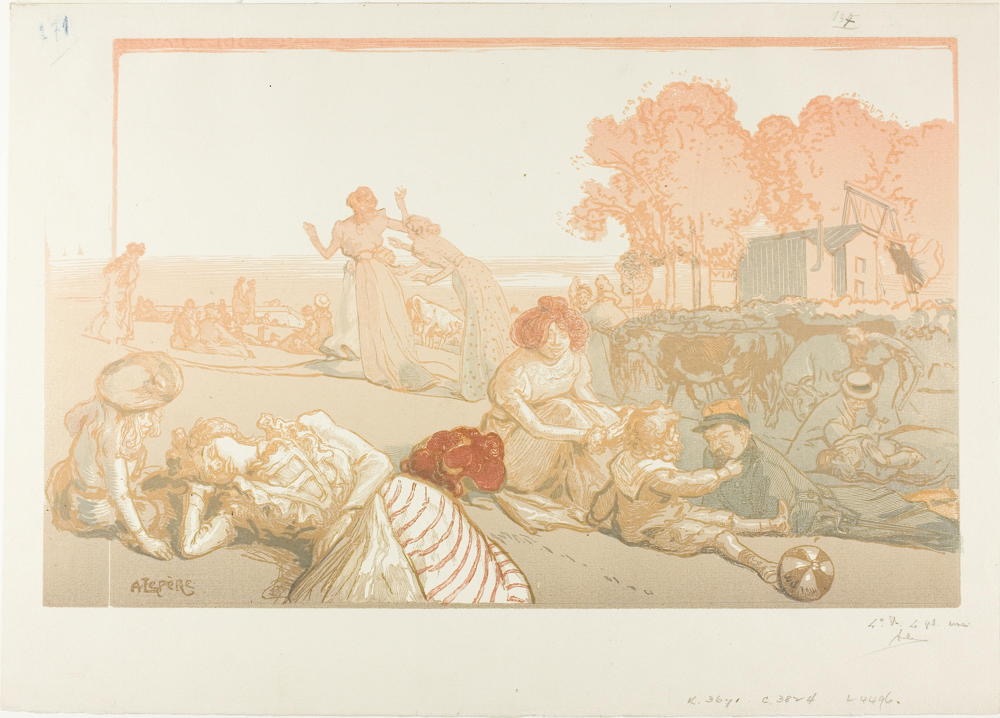
Louis Auguste Lepère: Modern Bucolic (1901)
My Still-Tolerable Fiction
I have become somewhat of a Pollyanna character in the current psychodrama because I remain hopeful and optimistic despite or because of the current troubles. I remain astounded by how so many seem so sure that they can see what's coming. Many seem to project from recent experience to confidently insist that we've already lost our sacred Democracy. And if we could reasonably project just from recent experience, their confidence might be well-placed. I don't understand what such confidence gets anyone besides discouragement when we seem to need more courage rather than less. I admit that I do not and most probably cannot know. This admission doesn't nudge my dread into complete remission, but it does seem to extend permission to believe remission still remains possible.
This NextWorld Series has helped me focus and perceive what has been unfolding before me, as much as I would have preferred to have been distracted and not paying such close attention.
Without
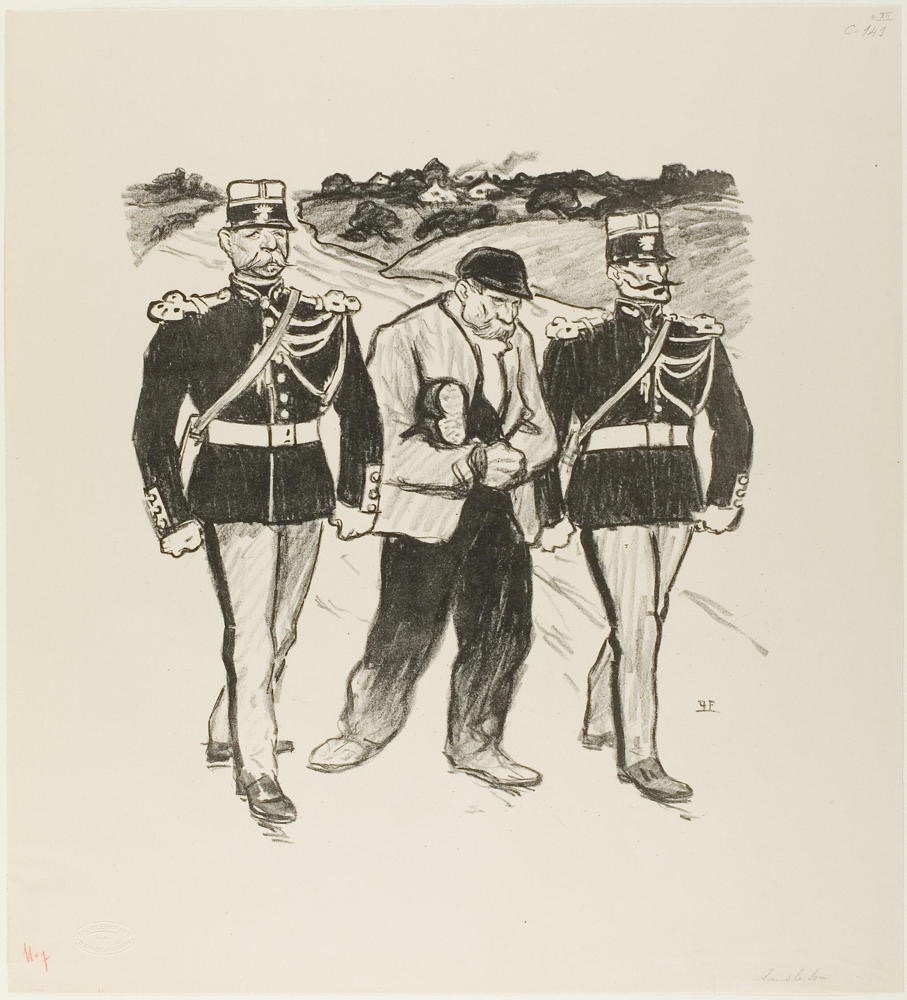
Théophile-Alexandre Steinlen: Without a Cent (March 1894)
printed by Edouard Kleinmann
" … patriotically doing Without!"
The first day of spring started suitably moist. The tail end of a week-long Pacific front left the street leading toward The Center of the Universe puddled and glistening. The cats, lately too familiar with that damp back fur feeling, hesitated before departing outside to make their morning rounds. I've tried to preserve their sense of rhythm through the long and isolating winter where outside so often seemed too unpromising for them to spend much time out there. I hovered close as if they might return the favor, for I also needed my time regulated. My world started disintegrating as the NextWorld began kicking in, though even my anticipation of it served to start closing me in. I anticipated shortages. As a proud veteran of the pandemic, I'd excelled at doing Without. I hunkered down and proudly made do, timing my off-hours excursions to avoid crowded venues. We didn't go out for supper. We avoided movies. We became willing homebodies, feeling we contributed to the common good via small sacrifices. While some protested the need for such compromises, we reveled in them. We thought mask mandates were common sense, and people complaining about them seemed self-destructively stupid.
The crazies have taken over now.
Unresolved
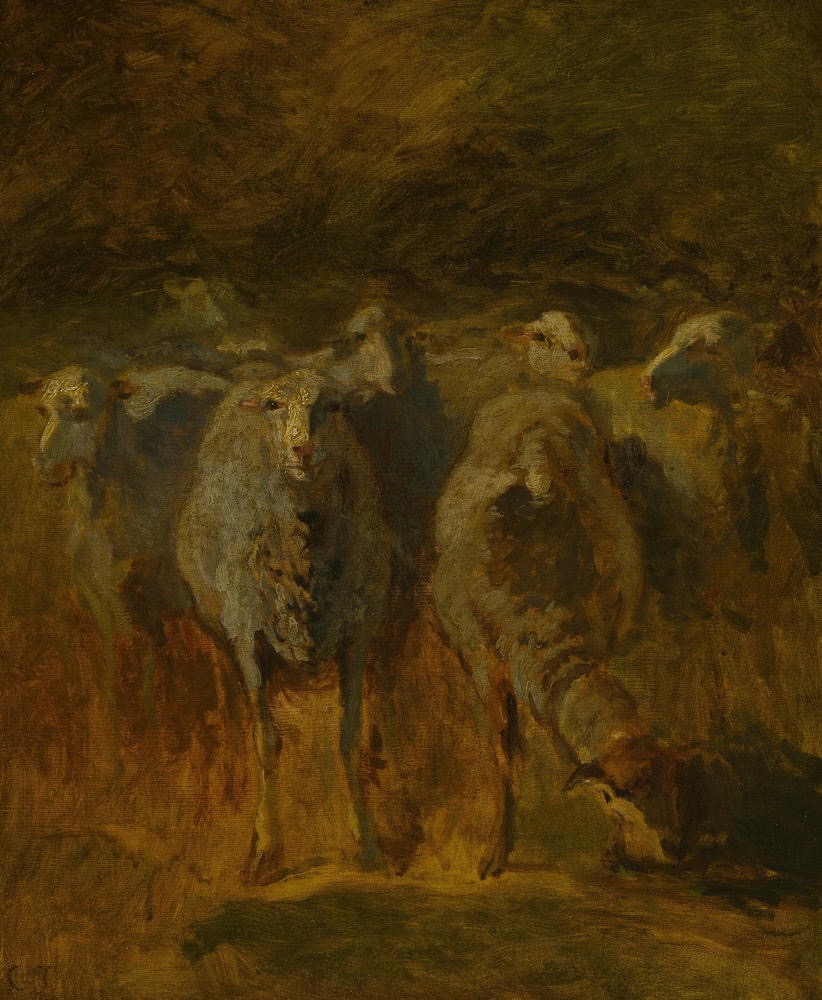
Constant Troyon: Unfinished Study of Sheep (c. 1850)
"If you think changing the world is difficult, try to keep it the same."
The ninetieth installment of any of my series marks the planned last story for me. This NextWorld Series will be a little different. It was probably always the nature of this particular series that it might hold the potential to be never-ending, for I designed it to be more about chronicling than post-facto reporting. At the beginning, I couldn't have known how or even if it might ever end, and that was my explicit intent. This has been my thirty-first series written over the prior almost eight years. Each followed this same design principle: the story would unfold rather than be outlined beforehand. In this sense, each series has violated one of the fundamental principles of both fiction and non-fiction. I might have been a writer much earlier in life, but I had to first get over the instructions that my fifth-grade teacher insisted represented the only proper way to write. She demanded an outline first before even laying pencil to paper. Then, she'd judge the result by how closely the finished work tracked to the original outline, as if this represented how anything works. It took decades for me to outgrow that poisonous lesson and simply start writing.
" … to mistake an aspirational for a supposed-to-be might be the source of most tragedy in this world."
Now, I can't seem to stop.
Lawlessness
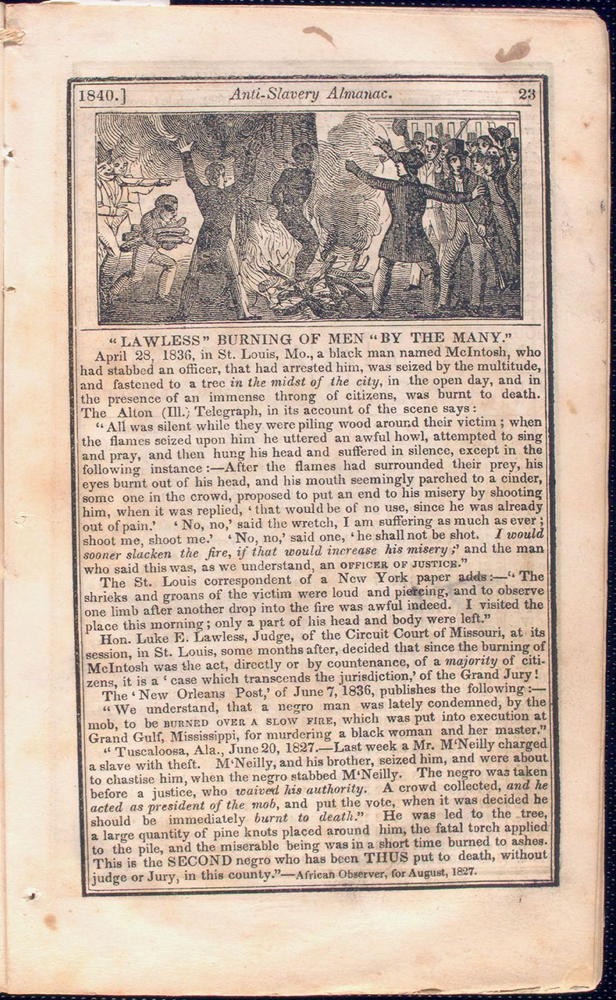
Anti-slavery Almanac:
Lawless " burning of men " by the many. (1840)
(The American Anti-Slavery Society published the almanac
yearly from 1836 to 1843.)
"We were not supposed to abandon all hope here."
Every bully dreams of anarchy, believing themselves immune from the inevitable harm that always accompanies Lawlessness. Their so-called success always proves temporary when they succeed, for the bullies always manage to do the most damage to themselves under such regimes. Without rules or line judges, they tend toward excesses that not even they can ultimately tolerate. Further, there is no respite when every man, woman, and child decides they're a despot. Vigilance starts against vilified groups but soon extends to include former friends and even relations. When agreements can be blithely ignored, everyone's imperiled, and no defensive force proves adequate to repel the wolves from any door. Periods of relative anarchy historically proceed periods of stricter order. The comeuppance comes as a kind of penance never soon forgotten. Vestiges of that innate wildness remain, of course, or we wouldn't be human, by which I mean, or else we wouldn't be wild animals. We never were as civilized as we'd hoped we'd be. It seems we're only decently respectful toward each other after we've committed some significant sin together. Armistices celebrate a temporary end to evil more than the beginning of good.
Our incumbent was always dangerous because he refused to follow prescribed rules.
ImaginaryEnemies

Giovanni Battista Piranesi: Title Page from Imaginary Prisons (1749–50)
"I do not believe he can possibly succeed by so transparently misleading us with his ImaginaryEnemies."
Sixty days into NextWorld, ImaginaryEnemies seem to outnumber any actual ones so far. Our fresh incumbent must possess a hyperactive imagination, if only because of the astounding number of opponents it manufactures. Ancient allies regularly turn up on replacement watch lists, accused of some previously invisible infraction. Our oldest trading partners stand accused of ripping us off for generations by insisting on following mutually agreed-upon trading rules. Our former benefactors join the ever-lengthening list of probable suspects. It almost seems as if we’re suddenly suffering from some persecution complex, as ridiculous as most of the accusations seem. With each new indictment, the accuser's credibility diminishes in the public's eye. With plummeting popularity, he, unsurprisingly, doubles then triples down. It would not surprise me to learn that we had finally been discovered to have been our own worst enemy for years and that it took a stable genius in the White House to finally recognize the threat. I suppose we will be owed an obligatory tariff on ourselves next.
I feel increasingly exhausted by the transparently imaginary turmoil.
HeadCold

Robert Dighton: Dev'lish Cold, from A Set of Heads (c. 1795)
"Achoo! [Bless You!] Bless us all!"
I've had something like a HeadCold haunting me over the last week. It's been sneaky because its sole tell has been a clogged left ear. No runny nose. No overwhelming sneezing. No cough or phlegmy throat, just that otherwise innocuous yet annoying clogged ear. I bought some decongestants, which, carrying on the proud tradition of decongestants throughout history, worked just a little worse than nose-picking. The primary symptom has been modest disorientation. I'll be writing a story at my deck when I suddenly sense myself listing slightly to the left. I felt weary then, as if I needed to lie down for a minute. These sensations distract me from my mission, though I have so far been able to stave off completely caving into them. However, I have been begging off working in the springtime yard in favor of lengthy naps. As we enter my favorite season after a protracted and unusually discouraging winter, I've been slinking around, so I sense something's wrong. The HeadCold hardly seems to qualify as an explanatory diagnosis.
Then, I caught onto an underlying significance.
Blather
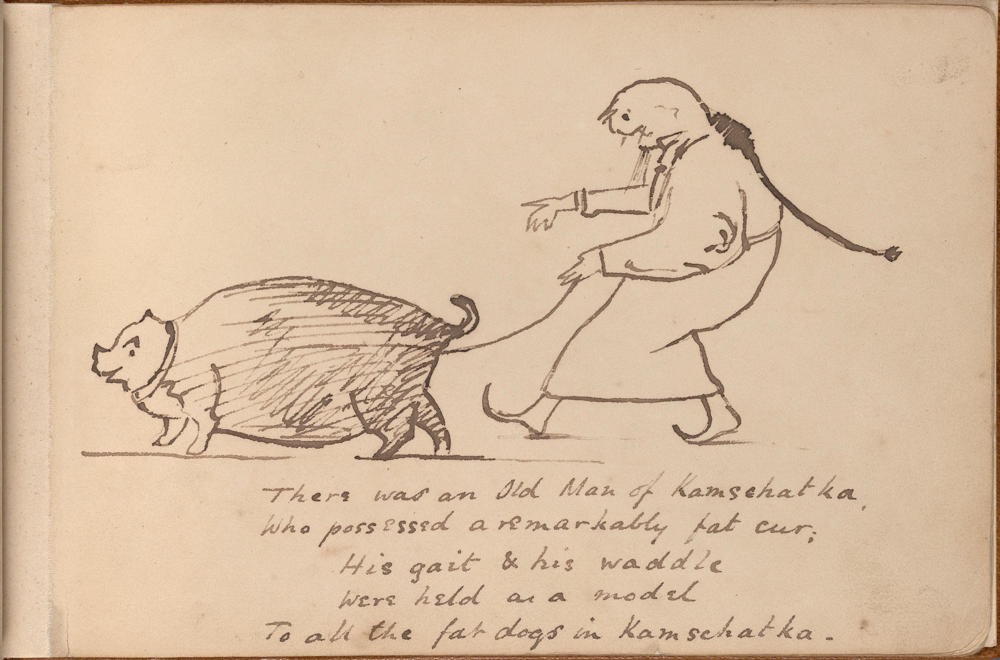
Edward Lear: from Book of Nonsense (1850s)
"Fishermen and golfers tend to be the most prodigious liars, masterful Blatherers."
News outlets have finally started publishing ver batum quotes from our incumbent. Before, journalists would attempt to translate whatever he'd attempt to say in what might have been a misguided belief that it was their journalistic responsibility to at least try to translate the essence of what he'd attempted to impart. This tactic failed in two significant ways. First, nobody could ever be confident that they'd adequately parsed a proclamation, so the reportage violated some journalistic first principle separating observation from fiction. The results often better qualified as reassuring fiction. Second, the reader was insulated from the more significant element of the story, that their president exclusively spoke in incoherent utterances instead of straightforward sentences. During the campaign, many complained that he seemed to be losing cognition. They'd assess word variety and see that his vocabulary had shrunk compared to earlier campaigns. Video of his speeches, almost exclusively replayed in small snippets, also demonstrated a definite incoherence. Those who survived one of his ninety-minute barn burners tended to lose cognition themselves from being subjected to his usages for so long.
Now that he's chief executive, he seems to have lost some of his former reticence.
Weekly Writing Summary For The Week Ending 03/13/2025
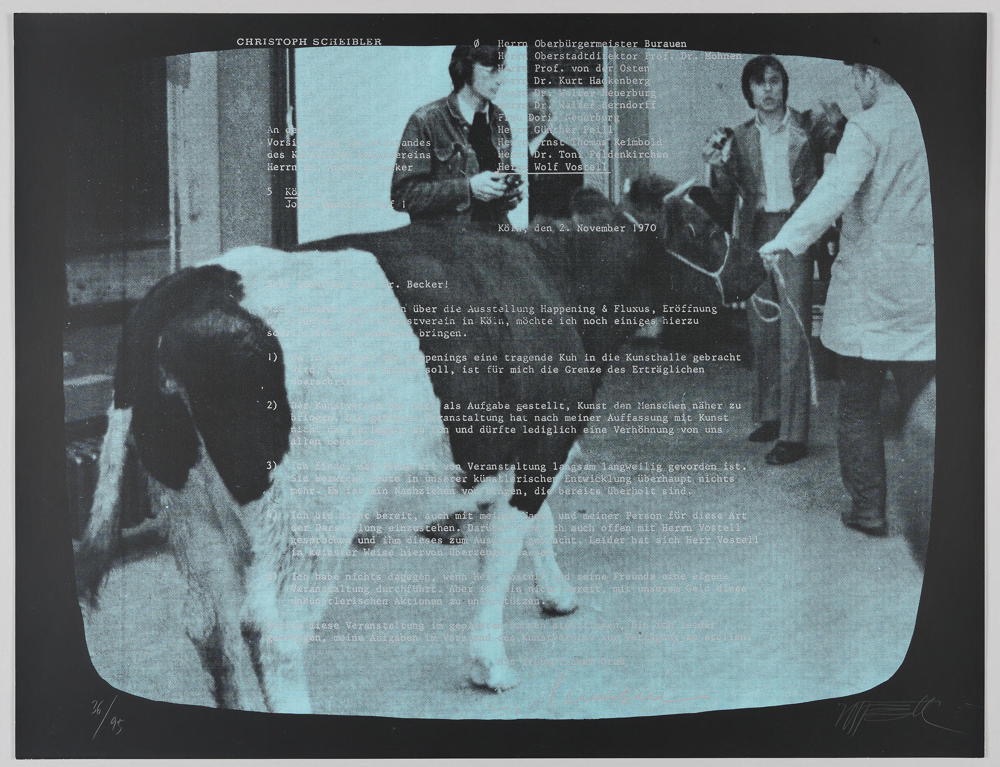
Wolf Vostell: TV-Oxen II, from the portfolio "Weekend"
[TV-Ochsen II, from the portfolio "Weekend"] (1972)
Published by Galerie René Block, Berlin
I Quietly Pray As I Wonder
I often wonder whether what I write will hold any future significance. Moments slip past all of us, and it might be that all writers attempt to stem that slippage by chronicling time's passing. As I reported last week, I've been spending more time considering before setting fingers to keys since I started this series. This time has seemed almost pregnant with significance. I write in ignorance, if not total ignorance, at most the usual volume of it. I anticipate here and also reflect; neither acts perfect reflections. Imperfections might best represent this time later, this period when NextWorld started manifesting without anyone controlling it. Our fresh incumbent seems to have honed his self-sabotage skills since his last time in office, and he already possessed perhaps the very best such skills ever seen in any incumbent. He's far surpassing even his prior incompetence. Our democracy struggles to compensate for his utter incivility. Most days, it seems as if he never noticed that other people are here, many utterly dependent upon his decisions. Fortunately, our attorneys general and judiciary remain steadfastly standing between us and his ineptency. I quietly pray as I wonder what to describe in my writing each morning.
Woebegone
Claude Monet: Sandvika, Norway (1895)
"I expect they'll continue trying, anyway."
The Lake Woebegone Syndrome might have proved the most damaging of all the popular delusions. Some would vote for Dunning-Kruger, "a cognitive bias in which people with limited competence in a particular domain overestimate their abilities" (Wikipedia) Different people favor different foibles, but for self-sustaining delusion power, Woebegone works for me. Named after Garrison Keillor's fictional Minnesota town of Lake Woebegone, where, in his description, "the men are strong, the women, good looking, and the children, above average." Keillor describes a fictional place that perfectly encapsulates a common human aspiration. Who wouldn't want to call such a place home? Who didn't, at some level, hail from a similar myth, if only because the world of our youth might have seemed more understandable, more reasonable? I refer to my hometown as the center of my universe, where gravity works right, and Keillor taps into that sense when he characterizes Lake Woebegone. Who doesn't aspire to return to such a place? Who doesn't secretly try to recreate that sense when designing something?
It's common that a company, when considering recruitment, produces a process intended to create a little Lake Woebegone.
Undue
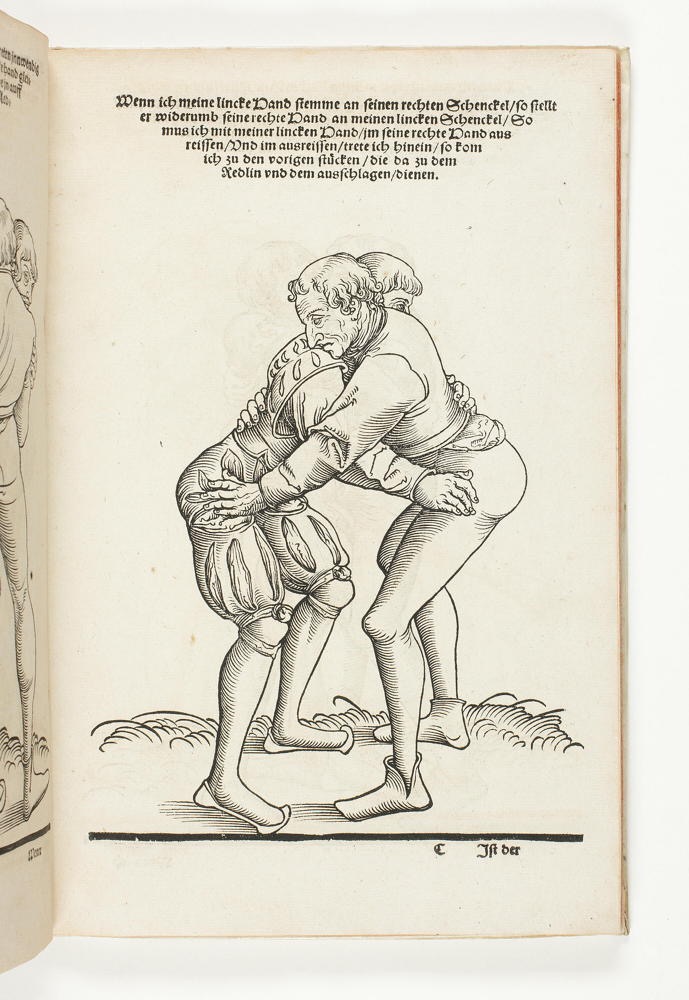
Lucas Cranach the Younger:
page from book: The Art of Wrestling: Eighty-Five Pieces
[Ringer Kunst: Fünff und Achtzig Stücke] (1539)
written by Fabian von Auerswald
printed by Hans Lufft
"I suspect this might be you and fear it will be me."
What better way to get your way than to simply ignore the rules as if they didn't pertain to you? The rules, after all, exist as mere agreements, and any associated guardrails are enforced more by practice than by police forces. We mostly police ourselves; when we don't, we tend to let the matter slide until some perfectly predictable accident occurs. Then, if then, the Justice Department might step in. If NextWorld has demonstrated anything, it's been how much civilization still depends upon the goodwill of upstanding citizens. Inject a few ill-willers into the mix, and everyone's world turns chaotic. Our incumbent stands as a cautionary tale in this respect. He always was the sort of personality we build jails to house, yet his brushes with justice found him slippery. He represents the worst our culture produces, unrepentant and insistent upon receiving much more than he's due. It was a huge mistake, if nonetheless typical that The Senate refused to convict and impeach him when they had the chance. I can find no evidence that showing mercy under such circumstances ever produces anything but worse behavior. It's no mercy, even to the offender, to find him not guilty when he's guiltier than sin.
Perhaps most of all, we prided ourselves on being a country of laws.
Nonsense

Unidentified Artist: The Nonsense Seller (1814)
Published by Aaron Martinet
"We will doubtless continue feeling disoriented … "
Ordinarily, following a few months' immersion, a new context starts making sense. I can one morning suddenly properly anticipate again. I rarely feel blindsided or surprised, even when some fresh inanity appears. Here, though, my experience has so far seemed unprecedented. I feel no sense of what might be coming next. My dread quotient sits near the red line, and I do not know how to quiet it. I feel deeply saddened as if utterly surrounded by stupidity, and it's stalking me. I daily learn of some fresh indictments for actions that don't qualify as crimes. Since when was it likely that one might be arrested for insulting a president, for showing genuine disrespect, especially after he'd earned it? Since now, I guess, though the courts seem as though they are already clogging up with what will inevitably be judged as frivolous charges. I expect a record number of disbarments as the Justice Department ramps up to become the incumbent's lap dog. The Nonsense might have made sense had Jonathon Swift, Lewis Carroll, or Mark Twain spun this tale. Instead, a third-rate, unreality television actor with declining cognition seems to have jumped the rails to become his own scriptwriter.
A respectful amount of literature was written to ridicule absurd rulers and their policies.
A_Modest_Proposal
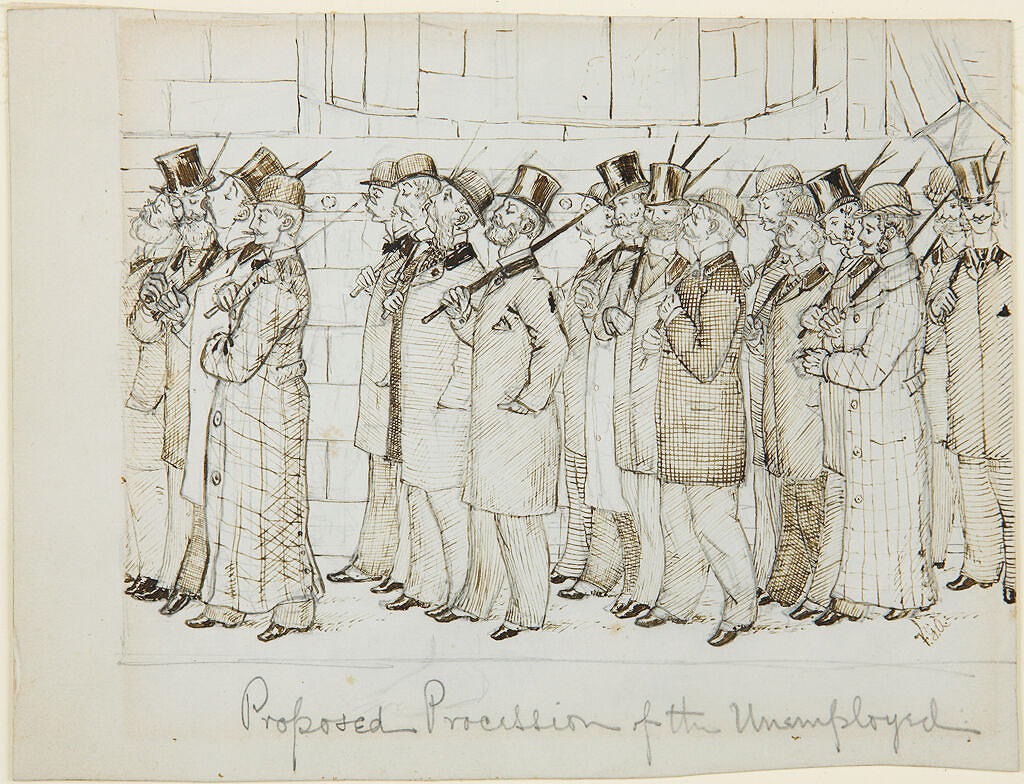
Frans Everbag: Spaarvarken en spaarbankboekje
[Piggy bank and savings bank book] (1915)
"( … can we actually achieve greater before we've even achieved great?)"
How very fortunate we are to find ourselves blessed with an experienced self-dealer holding the office of the presidency. Prior office holders were not so experienced in the fine, if often shady, art of creating personal fortunes through insider trading. Far fewer than one percent of any population ever possess the secret to resolving every problem human civilization has ever encountered, so what were the chances that we'd hit that lotto number in our lifetime? In any lifetime? Probably much less than zero, but here we are with an experienced self-dealer at our service! Just last week, he invited a group of crypto-captains to supper at the White House, where he announced the creation of a Strategic Crypto Reserve to be added to the nation's other stores of wealth like Ft. Knox. He apparently tipped off those insiders as to which currencies he would choose for the pilot program. Over the following weekend, two previously languishing cryptocurrencies experienced dizzying increases in value, suddenly launching whoever held those "currencies" into personal wealth beyond imagination. The president himself, skilled self-dealer that he was, reportedly cleared something north of five billion dollars just over those two days, a return he confidently declared amounted to peanuts. The targetted cryptos reportedly later crashed back to be worth a little less than before they started booming that previous Friday.
In the past, such an admission would have put him into the number one slot for investigation by the FBI's financial fraud division.
Unnecessity
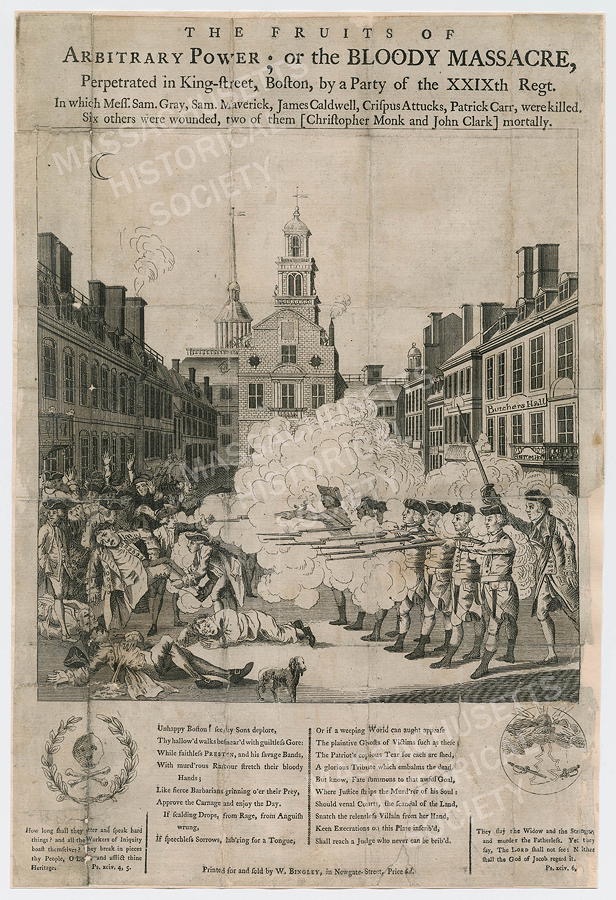
Printed for and sold by W. Bingley, Newgate Street London:
The Fruits of Arbitrary Power: or The Bloody Massacre (1770)
Massachusetts Historical Society Online Collection
"Not a lick of any of this was ever necessary for a second."
NextWorld seems primarily comprised of Unnecessity, absurdly arbitrary insistences. The war on common decency, where our better angels are vilified in favor of long-ago vanquished lesser ones. The absurd attacks of diversity initiatives, equity improvements, and respectful attempts to include everyone in opportunities. Nonsensical complaints about awareness, as if sleepwalking were preferable to acknowledging experience. The forced blindness of refusing to acknowledge genders. The never-existent yet still popular War On Christmas. The belligerent practice of primitive Christianity as if it represented the state religion. The insistence that, despite our Constitution, our sacred separation of church and state amounts to an abomination. Perhaps most of all, the cruel discrimination as if some citizens were naturally more American than others. The vilification of the weakest among us. The criminalization of everyday actions via presidential proclamations. Perhaps most of all, the presuppositions guiding these insanities. These notions go largely unquestioned, though nothing beyond innuendo was ever offered to justify or prove they were true.
The belief that all government spending has always been, by definition, wasteful, fraudulent, and abusive, and therefore, should be suspended.
Whim

Johann Wilhelm Baur: The Ordering of Chaos (c. 1639)
" … an undisciplined eight-year-old ruled by Whim."
The defining element of NextWorld might end up being Whim, our incumbent's impulsive choices. What if there never was a plan, if Project 2025 never influenced a single action by this administration? What if the continuing analysis intending to identify motive and strategic intent amounted to so much wishful imagining? In statistics, sophisticated tests exist to determine if apparent patterns amount to random events or contain potentially useful information. Since we are pattern-seeking organisms, we readily perceive patterns where there might be none. It can be damnably difficult to determine the difference in the real world. We presume strategic intent, whether or not it exists. We imagine that some plan informs action even though much of our own behavior might be best labeled unplanned. But we don't natively seem to perceive randomness, either. We might be incapable of perceiving randomness, especially regarding human events. We might accept that evolution depends upon random iteration without fully appreciating that it influences human events and world history no less.
The booming cottage industry focused on understanding our latest president's behavior never seems to sleep.
Weekly Writing Summary For The Week Ending 03/06/2025
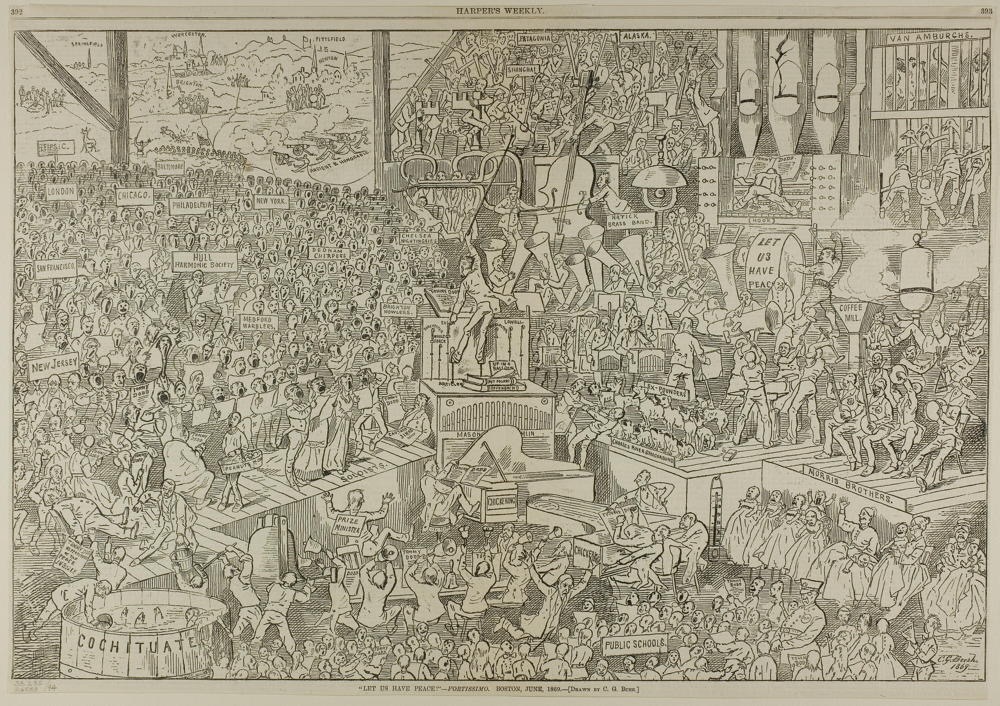
Charles Green Bush: Let Us Have Peace! -Fortissimo,
from Harper’s Weekly Date: published June 19, 1869
Inevitable Impeachment Trial
With only two more weeks remaining in this quarter—in this over-long winter—I realize that the NextWorld I have committed myself to describe in this series will not fully manifest before I exhaust my allotted time. Three months has been as long as I've cared to focus my attention on any topic. After fully immersing myself in prior series, I have required some fresh perspective. I sense that this series might have been a mistake, for I am not a political commentator or patriot by nature or interest. Yet, I have been watching myself channel my inner Thomas Paine in my writing each morning. I have felt genuine outrage that anyone would try to undermine MY democracy. My relationship with my country has never before been the least bit chauvinistic. I've thought the banner-waving patriots more hat than cattle. I have squelched whatever pride I might have felt, sensing my pride probably would preface some fall. The Mall in DC is lined with monuments to human folly, and thanking others for their service has often felt obligatory. I sometimes plumbed the edges of diversity yet still felt my country was of me. The criminals currently occupying the government disgust me, for I believe we should be gratefully bound by laws. The lawlessness exercised by these clowns might go unpunished, with four Supreme Court justices unable or unwilling to abide by our constitution. I do not aspire to be a reporter, though. I'm just a writer. I have surprised myself with the content of this series so far. I didn't know how deeply I felt about my government, how deeply I respected the patriots who populated the misunderstood bureaucracy until it was threatened by idiocy and lawlessness. There never was any master plan. The tactic was to disrupt, bring down, and humiliate, yet that tactic has been backfiring so far. Even the tariffs turned out to have been unconstitutional. Add that violation to the ever-lengthening indictments. I wonder what I'll write about when the inevitable impeachment trial gets underway.
NoDogBarking
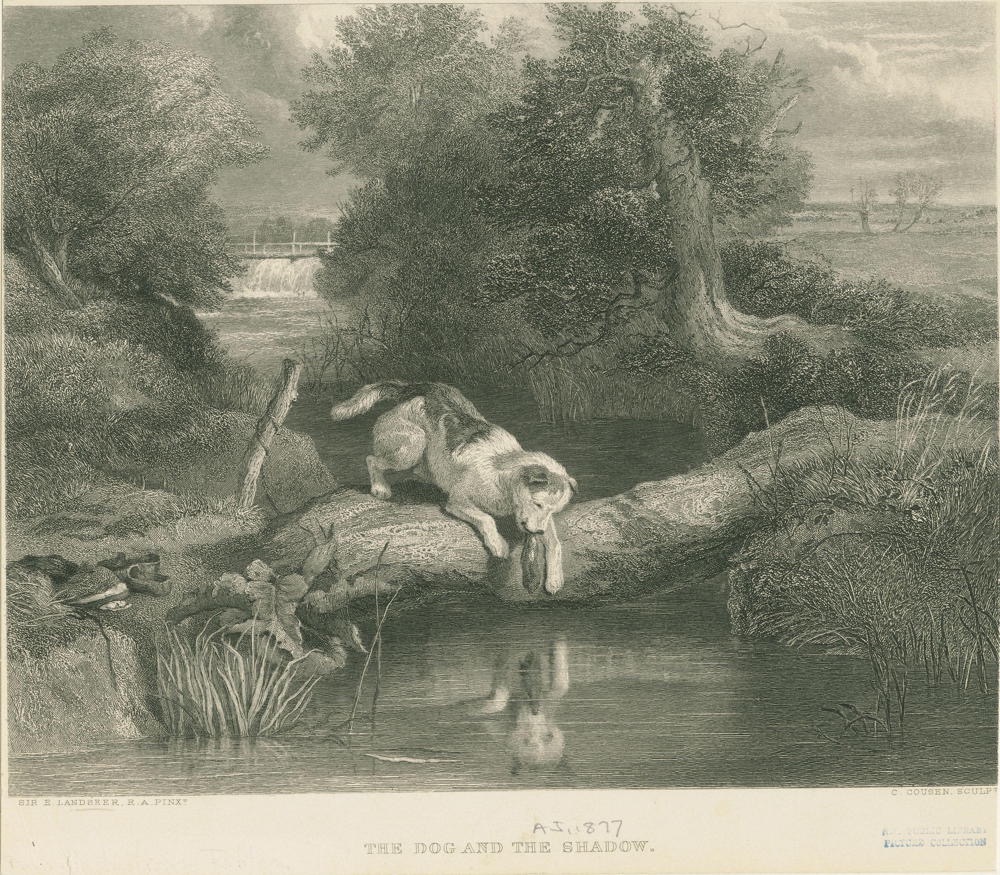
Edwin Landseer: The dog and the shadow (1877)
Engraver: Charles Cousen
"Our antibodies should vanquish this evil infection."
The oath guides the oath-taker to swear to defend against all enemies, foreign and domestic, without offering any instruction about how to identify an enemy. The most insidious enemies arrive unrecognizable or, worse, in deep disguise, so they seem friendly. Everyone assumes that they'll know one when they see one, but never having seen one, they have no experience from which to draw. False positives might be common, but false negatives seem far more worrisome. The literature has explored every variation, from the fox in the hen house to the demon born as the son of the American ambassador. Once they're through the door, defenses seem as useless as The Maginot Line. Once the infiltration happens, one faces a wholly different problem. One that might not have a solution, for then it's no longer an attempted intrusion but a full-blown infection, and we're usually loathe to take our medicine. We reason that we did not deserve this illness, that we had generally always been decently intended, but our pleas fall beside some more profound point. We're no longer independent from the threat. It has become us, so to live up to our oath, we must figure out how to defend against ourselves.
When the president commits treason, the defense must stretch beyond what would have once passed for reason.
FutureTensions

Corita Kent (Sister Mary Corita): let the sun shine (1968)
Inscriptions and Marks
Signed: l.r.: Corita
(not assigned): Printed text reads: LET THE SUN SHINE IN
the creative revolution—to take a chunk of the imagined future and put it into the present—
to follow the law of the future and live it in the present. Waskow
inscription: l.l., in graphite: 68-69-E
"We experience dying."
NextWorld is most assuredly not the present world and never will become it. It exists only as promises never intended to be fulfilled. It exists only as a placeholder to attract and hold attention away from present tensions, which true believers insist will prove to be only as temporary as necessary. We wonder how provisional that might prove to be. They tout the oldest excuses, insisting that nobody bakes cakes without breaking eggs when they're neither baking cakes nor breaking eggs. These are real people involved. Now! They do seem to be cooking up something, though, and it doesn't smell much like dessert. It smells distinctly fishy and not in any alluring way. It stinks! The promises are supposed to separate us from those senses, to fill us with satisfying hot air. It lacks substance, nourishment, and anything even distantly resembling truth. It only tastes sweet if you believe. Those who cannot or will not believe cannot receive the blessings only such belief can bring. NextWorld is nothing and never will be. It still wrecks plenty of havoc.
Those who somehow manage to believe baffle the rest of us, for belief never requires any sort of verifiable basis.
Deflating

Edmond Guilliaume: Bismarck, from Les Génies de la Mort
[The Geniuses of Death] (1870)
ABOUT THIS ARTWORK
Edmond Guilliaume’s images are blunt caricatures that combine well-known German symbols, war leaders, and macabre images of destruction. Otto von Bismarck became prime minister of the Prussian state in 1862 and of the unified German Empire in 1871. To a French audience, he was the cruel leader of the Franco- Prussian War (1870–71). With a skull head, pointed Prussian helmet, and Prussian eagle superimposed on his face, Bismarck looms like a poisonous, grasping plant over the destruction of the French countryside. Playing off a noble coat of arms, Guilliaume gave the French enemy a ghoulish image of death.
"We'll see who fills the gaps deliberately carved into our once-reliable safety nets."
When I attended high school, my part-time after-school job paid me $23.50 in today's currency per hour. Further, depending on the season, anyone who wanted a job could find one. Through the summer, even better-paying harvest work went begging. My actual rate of pay was $2.50. The Vietnam War raged in the background, and the economy was booming. As the war started winding down, inflation became a concern. Unemployment became a thing again as the economy cooled. Several shocks to the economy occurred in the early seventies. War in the Middle East spawned a slowdown in petroleum imports, which raised domestic gas prices by over fifty cents a gallon, doubling overnight. Interest rates soared as never before, with mortgage rates climbing into the mid-teens by the end of that decade. The Reagan Administration engaged in almost unprecedented efforts to reign in what was labeled "stagflation," economic stagnation combined with alarming inflation. The effort attempted to cool the price expansion without cratering economic growth. This was my introduction to Deflating.
For most of my life, the economy had hummed along growing.
Consent

Unknown Artist: Nullification….despotism (1833)
LITHOGRAPHER: Endicott & Swett
"Commerce between master and slave is despotism." Thomas Jefferson
"We were founded to instantiate E Pluribus Unum, never the other way around."
Democracy demands that the governed give consent to those who govern. The alternative, however else it might get dressed up, amounts to despotism. To clarify my terms, despotism denotes any form of governance depending upon absolute power to affect that governance. In other words, under despotism, the people do not have a say about who governs them or how that governance operates. It amounts to a Father Knows Best form of government where The People enjoy the absolute freedom to be treated as ignorant children. Many organizations operate under this form of governance, not least some of the more prominent churches. Traditionally, whatever The Pope declared was considered the word of God. It's difficult to imagine any more absolute power than that exercised by God or his duly designated representative here on Earth. Even The Pope holds an elected position, though. A general election of all Catholics might not have chosen him, but a collection of the second-highest potentates, who supposedly represent the interests of all their constituents, come together to select a Pope from a slate of candidates of their peers, effectively providing consent of the governed to the selection process. In this way, not even the Catholic Church fully qualifies as despotism since the power seems to initiate from the consent of at least the governed’s representatives.
Labor unions are founded upon just this principle: workers should properly have a say in managing the operations within which they labor.
TheBreaking
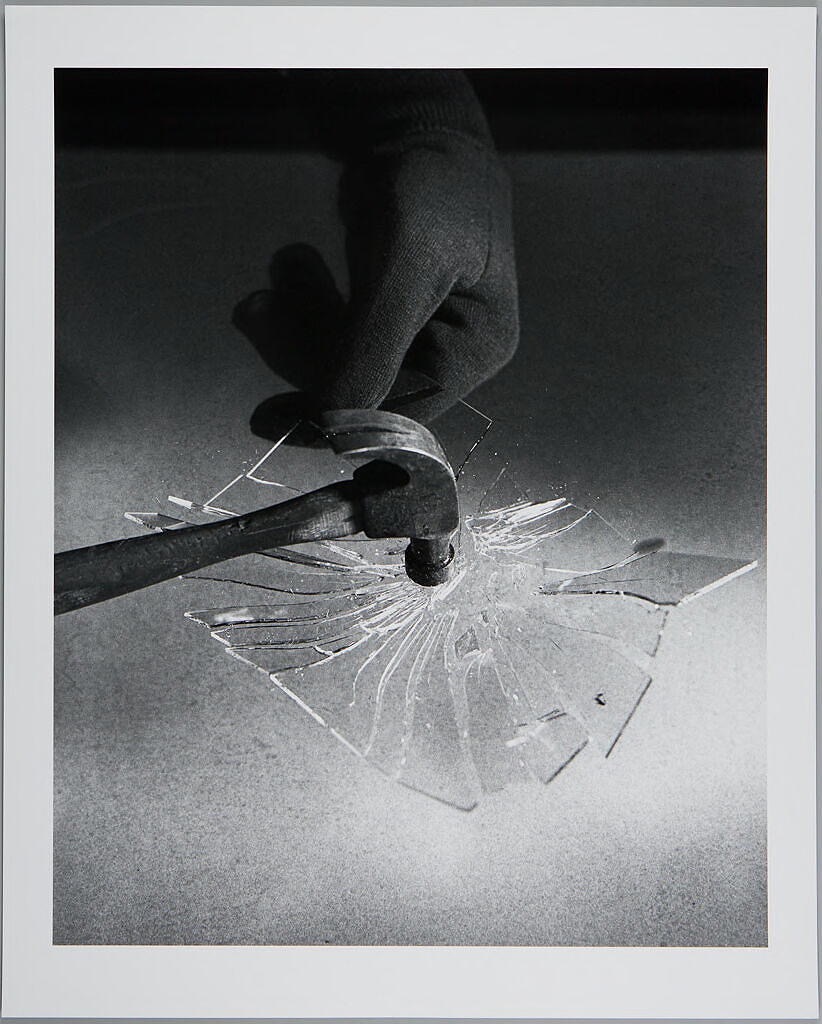
Harold Edgerton: Hammer Breaking Glass (1933)
" … what might really make America greater than anybody ever expected, again."
The dedicated sociopath eventually oversteps his boundaries. He never could color within the lines of propriety, and, eventually, he strays too far over the lines and alienates his primary constituency. His was never more than theoretically anything, anyway. Its reality would, then, have to seem rather radically different from the illusion he so successfully managed to initially project. Making America Great Again couldn't have ever possibly felt like as great an experience in practice as it promised in theory. Once gravity actually engages, nothing seems to fly as easily. Hefting actual mass makes real work. Every action inevitably spawns a roughly equal and opposite reaction, and externalities tend to quickly start inconveniently piling up. Unintended and unexpected consequences burden acceptance. Targets move too close to home. We finally glimpse the long-reviled enemy, and he turns out to more than merely resemble us.
Even benevolent reformers encounter these effects, for old status quos, however ineffective, tenaciously hold their ground.
WhoTurns?
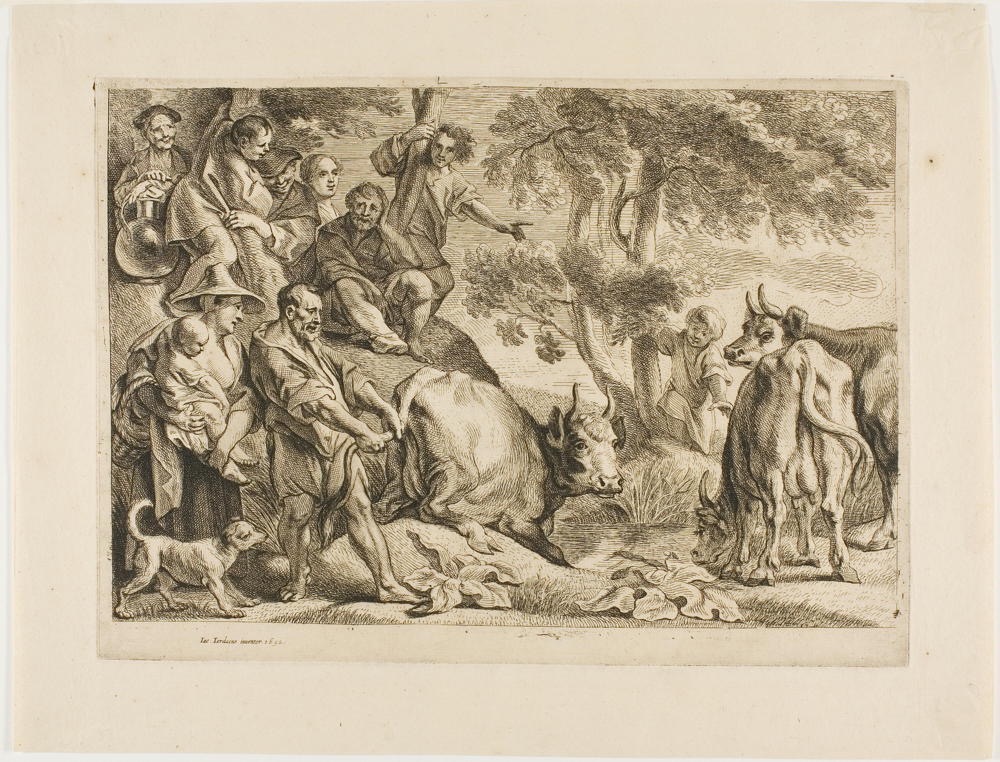
Jacob Jordaens:
The Master Pulls the Cow Out of the Ditch by its Tail (1652)
ABOUT THIS ARTWORK
The title and subject of this etching come from a proverb in the Dutch poet and humorist Jacob Cats’s 1632 Mirror of Old and New Times. The proverb explains that it is necessary for a person to take responsibility for his or her own affairs. Jacob Jordaens depicted the proverb literally, showing a cow that has fallen into a ditch and must be pulled out by its master. The crowd of onlookers does not help the man, for it is his duty to care for his animal. The theme of this etching exemplifies the moralizing nature of many Dutch works of the period, and the composition recalls a tapestry by Jordaens in his Proverbs cycle.
"We dare not sit silently while this perverse, immoral minority tries to take over our state."
Our world has always been overfilled with seductions. Depending upon individuals’ proclivities, they might find infinite ways to fall. Some tumble to the ever-popular omission while others prefer to commit something, but none of us were ever impervious to some perverse attraction. Our moral and ethical fiber seem unlikely to ultimately save anybody, but a time will come when one will face a choice. Most choices will not come nearly as simply as any either/or, and many if not most, might manifest more like dilemmas, where your response will appear to damn you, whichever side you take. A moral or ethical compass finally shows its inherent usefulness after perhaps a lifetime of idling. Then, the defining difference might emerge. Then, the underlying purpose of every prior struggle might find meaning. Once one makes this choice, it's likely to be irrevocable. The fate's sealed. Identity is finally revealed. The question was always, "Will you become a Nazi?" You're already done for if the answer isn't "No!”.
The rise of NextWorld harbingered just such a choice.


